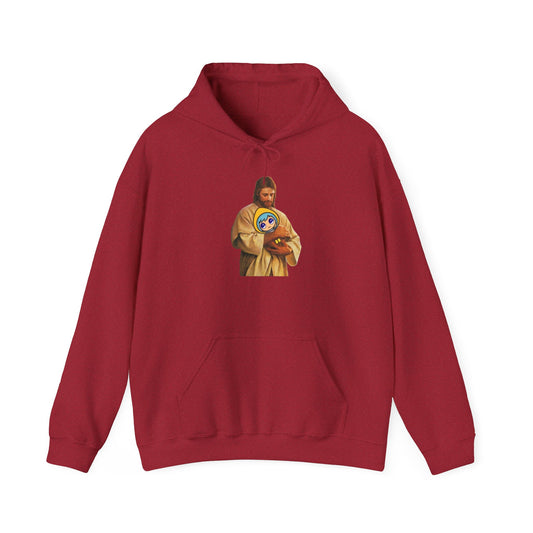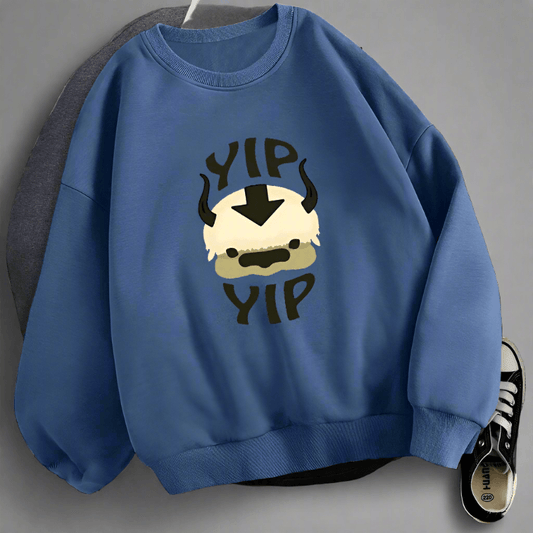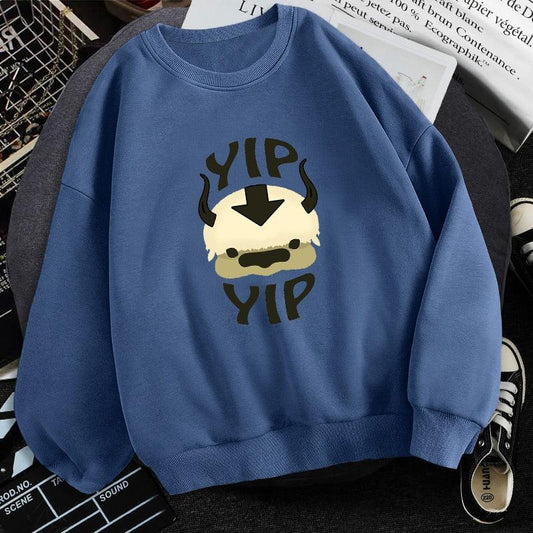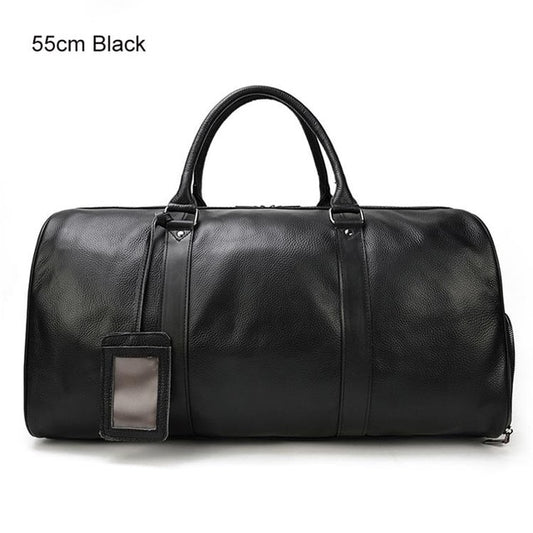The Dark Side of Fame: Unraveling the Justin Bieber, Diddy, and Meek Mill Allegations
Introduction
In recent weeks, the music industry has been rocked by shocking allegations involving some of its biggest names. At the center of this storm are Justin Bieber, Sean "Diddy" Combs, and Meek Mill, whose alleged involvement in a complex web of exploitation has sent shockwaves through the entertainment world. These accusations have not only tarnished reputations but have also shed light on the darker undercurrents that often run beneath the glittering surface of fame and success.
The alleged exploitation of young artists in the music industry is not a new phenomenon, but the scale and scope of these recent allegations have brought the issue into sharp focus. As we delve into the details of this unfolding scandal, we'll examine the complex dynamics at play, the potential legal ramifications, and the broader implications for an industry that has long grappled with issues of power, control, and abuse.
Background and Context
Justin Bieber's Rise to Fame
Justin Bieber's journey to stardom began in 2007 when, at just 13 years old, he was discovered on YouTube by talent manager Scooter Braun. His meteoric rise to fame was unprecedented, with his debut EP "My World" going platinum in several countries. By 2010, Bieber had become a global sensation, his boyish charm and catchy pop tunes capturing the hearts of millions of fans worldwide.
However, the pressures of early fame took their toll. As Bieber transitioned from teen idol to adult artist, he faced numerous personal and professional challenges, including substance abuse issues and public scandals. In recent years, Bieber has been more open about his struggles, shedding light on the darker aspects of his journey to stardom.
Diddy's Role as a Mentor and Industry Powerhouse
Sean "Diddy" Combs has long been a towering figure in the hip-hop and R&B world. Rising to prominence in the 1990s as both an artist and a producer, Diddy expanded his influence to become a successful entrepreneur and mentor to many young artists. His record label, Bad Boy Entertainment, launched the careers of numerous stars, and his business acumen led to ventures in fashion, beverages, and media.
Diddy's role as a mentor to young talents like Justin Bieber and Meek Mill was once seen as a natural extension of his industry influence. However, recent allegations have cast a sinister shadow over these relationships, suggesting that his mentorship may have veered into exploitation.
Current Relevance: Recent Raids and Investigations
The gravity of the situation became apparent on March 25, 2024, when Homeland Security conducted raids on Diddy's homes in Miami and Los Angeles. These raids were part of an ongoing investigation into allegations of sex trafficking, a development that sent shockwaves through the entertainment industry and beyond.
The raids marked a significant escalation in the scrutiny of Diddy's activities and brought the allegations of exploitation into the realm of potential criminal conduct. As the investigation unfolds, it has sparked intense public interest and debate about the nature of power dynamics in the music industry and the vulnerability of young artists to exploitation.
The Allegations
Justin Bieber's Alleged Experiences
Recent statements from Justin Bieber have shed light on his alleged experiences with Diddy. While Bieber has not explicitly admitted to sexual encounters, he has described a relationship marked by manipulation and control. According to Bieber, what began as a mentorship quickly evolved into a situation where Diddy exerted influence over various aspects of his life, including his career decisions and personal relationships.
Bieber has spoken about being exposed to inappropriate situations at a young age, including parties and events that were unsuitable for someone of his age. These allegations paint a picture of a young artist being gradually drawn into a world he was ill-equipped to navigate, with potentially devastating consequences for his mental health and well-being.
Meek Mill's Involvement
The allegations surrounding Meek Mill's involvement are less clear-cut but equally troubling. Like Bieber, Meek Mill was a young artist who came under Diddy's influence early in his career. While specific details of Meek Mill's experiences have not been widely publicized, his name has been mentioned in connection with the broader allegations of exploitation within Diddy's circle.
The involvement of multiple young artists in these allegations suggests a pattern of behavior that extends beyond isolated incidents, raising questions about the systemic nature of exploitation within certain sectors of the music industry.
Diddy's Alleged Role in Exploitation
At the heart of these allegations is Diddy's alleged role as the orchestrator of a system of exploitation. According to various sources, including outspoken industry figure Jaguar Wright, Diddy not only exploited young artists for his own gratification but also allegedly "passed them around" to friends and associates.
These accusations, if proven true, would represent a gross abuse of power and a betrayal of the trust placed in Diddy as a mentor and industry leader. The allegations suggest a calculated system of grooming and manipulation, targeting vulnerable young artists at the outset of their careers.
Industry Exploitation
Power Dynamics in the Music Industry
The allegations against Diddy have brought into sharp focus the inherent power imbalances within the music industry. Young artists, often naive and eager for success, can find themselves at the mercy of established industry figures who control access to opportunities, resources, and connections.
This power dynamic creates a fertile ground for exploitation. Aspiring artists may feel pressured to comply with the demands of powerful mentors or industry executives, fearing that refusal could derail their careers before they've even begun. The blurring of professional and personal boundaries in the entertainment world can further complicate these relationships, making it difficult for young artists to navigate or resist inappropriate situations.
Manipulation of Young Artists
The manipulation of young artists often begins subtly, with mentors or industry figures offering guidance, support, and opportunities. However, this support can come with strings attached, gradually evolving into a form of control. Young artists may find themselves isolated from family and friends, becoming increasingly dependent on their mentors for both professional and emotional support.
In the case of the allegations against Diddy, this manipulation allegedly extended to controlling various aspects of artists' lives, from their career decisions to their personal relationships. This level of control can leave young artists feeling trapped and powerless, unable to speak out or seek help without jeopardizing their careers.
The Culture of Silence and Complicity
One of the most troubling aspects of industry exploitation is the culture of silence that often surrounds it. Fear of retaliation, career suicide, or simply not being believed can keep victims from speaking out. Moreover, the interconnected nature of the music industry means that many people may be aware of inappropriate behavior but choose to remain silent out of self-interest or fear.
This culture of silence creates an environment where exploitation can flourish unchecked. It also places an enormous burden on victims, who may feel isolated and unsupported in their experiences. Breaking this silence is crucial to addressing and preventing future exploitation, but it requires courage from individuals and a collective willingness to confront uncomfortable truths about the industry.
Legal Implications
Homeland Security Raids
The raids conducted by Homeland Security on Diddy's properties in Miami and Los Angeles on March 25, 2024, marked a significant escalation in the legal scrutiny of these allegations. These raids were reportedly part of an investigation into sex trafficking, suggesting that the allegations against Diddy may extend beyond civil matters into potential criminal conduct.
The involvement of federal law enforcement agencies underscores the seriousness of the allegations and the potential for wide-ranging legal consequences. Such raids typically involve the seizure of potential evidence, including electronic devices and documents, which could provide crucial information for ongoing investigations.
Potential Charges and Consequences
While no formal charges have been filed as of the latest reports, the potential legal consequences for Diddy and others implicated in these allegations could be severe. Possible charges could include:
- Sex Trafficking: If evidence supports allegations of coercing or transporting individuals for sexual purposes, this could lead to federal sex trafficking charges.
- Sexual Exploitation of Minors: Given that some of the alleged victims were underage at the time, charges related to the sexual exploitation of minors could be pursued.
- Racketeering: If investigators can establish a pattern of organized criminal activity, RICO (Racketeer Influenced and Corrupt Organizations Act) charges could be brought.
- Drug-related Charges: Some allegations involve the use of drugs to facilitate exploitation, which could lead to drug-related charges.
The consequences of such charges, if proven, could include lengthy prison sentences, substantial fines, and the complete destruction of professional reputations and careers.
Comparison to Other High-Profile Cases
The allegations against Diddy and the subsequent investigations bear some similarities to other high-profile cases in the entertainment industry:
- R. Kelly Case: Like the allegations against Diddy, R. Kelly's case involved accusations of exploiting young artists and engaging in sexual misconduct. Kelly was ultimately convicted on multiple charges, including racketeering and sex trafficking, resulting in a 30-year prison sentence.
- Harvey Weinstein Case: While in a different sector of the entertainment industry, the Weinstein case similarly involved a powerful figure accused of using his position to exploit and abuse aspiring talents. Weinstein's conviction marked a watershed moment for the #MeToo movement and demonstrated the potential for legal accountability in cases of industry exploitation.
- Jeffrey Epstein Scandal: Although not directly related to the music industry, the Epstein case shares similarities in terms of allegations of a powerful figure exploiting young individuals and the involvement of other high-profile personalities. The wide-reaching implications of the Epstein case demonstrate how such scandals can have far-reaching consequences beyond the primary accused.
These cases serve as precedents for how the legal system might approach the allegations against Diddy, while also highlighting the potential for such cases to have broader societal impacts in terms of awareness and industry reform.
Psychological Impact
Trauma and Long-Term Effects on Victims
The psychological impact of exploitation on victims can be profound and long-lasting. Victims of sexual exploitation and manipulation often experience a range of mental health issues, including:
- Post-Traumatic Stress Disorder (PTSD): Victims may experience flashbacks, nightmares, and severe anxiety related to their traumatic experiences.
- Depression: The feeling of powerlessness and betrayal can lead to deep-seated depression and feelings of worthlessness.
- Anxiety Disorders: Victims may develop generalized anxiety, social anxiety, or panic disorders as a result of their experiences.
- Substance Abuse: Many victims turn to drugs or alcohol as a coping mechanism, leading to additional health and personal problems.
- Trust Issues: The betrayal of trust by mentors or industry figures can make it difficult for victims to form healthy relationships in the future.
- Self-Esteem Problems: Exploitation can severely damage a person's sense of self-worth and confidence.
These psychological effects can persist long after the exploitation has ended, impacting every aspect of a victim's life, from personal relationships to professional endeavors.
Justin Bieber's Struggles with Substance Abuse and Mental Health
Justin Bieber's journey provides a stark example of the potential psychological toll of early fame and alleged exploitation. In recent years, Bieber has been increasingly open about his struggles with mental health and substance abuse. In his own words:
"I was popping pills, I was doing Molly, um, you know shrooms... it was just an escape for me. I was just young, you know, like everybody."
This candid admission highlights the vulnerability of young artists to substance abuse as a coping mechanism for the pressures and potential traumas they face. Bieber has also spoken about experiencing depression and anxiety, further underscoring the mental health challenges that can arise from early exposure to the pressures of fame and potentially exploitative situations.
Expert Opinions on the Psychological Toll of Exploitation
Mental health professionals and industry experts have weighed in on the psychological impact of exploitation in the entertainment industry. Dr. Carole Lieberman, a forensic psychiatrist, states:
"The psychological impact of exploitation in the entertainment industry can be devastating and long-lasting. Young artists, who are often seeking validation and success, are particularly vulnerable to manipulation by powerful industry figures. This exploitation can lead to a range of mental health issues, including depression, anxiety, PTSD, and substance abuse problems."
Dr. Jennifer Yashari, a psychiatrist specializing in trauma, adds:
"The power dynamics in these situations can create a complex trauma response. Victims may struggle with feelings of shame, self-blame, and confusion, especially if the exploitation occurred under the guise of mentorship or career advancement. Recovery often requires long-term therapy and a strong support system."
These expert opinions underscore the serious and lasting nature of the psychological harm that can result from exploitation in the entertainment industry.
Industry Response
Public Statements and Reactions
The allegations against Diddy and the subsequent raids have elicited a range of responses from industry figures and organizations. While many have expressed shock and condemnation, others have been more cautious in their statements, likely due to legal considerations and the ongoing nature of the investigations.
The Recording Academy, the organization behind the Grammy Awards, released a statement saying:
"We are deeply concerned by the serious allegations that have come to light. The Recording Academy stands firmly against any form of exploitation or abuse within the music industry. We are closely monitoring the situation and will take appropriate action as more information becomes available."
Several artists have also spoken out, though many have done so anonymously due to fear of repercussions. One prominent hip-hop artist, speaking on condition of anonymity, stated:
"This is a wake-up call for the entire industry. We've known for years that there are dark corners in this business, but the scale of these allegations is shocking. It's time for a real reckoning."
Calls for Reform and Accountability
The allegations have sparked renewed calls for reform and greater accountability within the music industry. Advocacy groups and industry watchdogs are pushing for:
- Stricter regulations on mentorship programs and artist-manager relationships.
- Improved reporting mechanisms for misconduct and exploitation.
- Mandatory training on consent, power dynamics, and appropriate professional boundaries.
- Greater transparency in contract negotiations and career management for young artists.
- Establishment of independent oversight bodies to investigate allegations of misconduct.
The #MeToo movement, which has already had a significant impact on the film industry, is now turning its attention to the music world with renewed vigor in light of these allegations.
Potential Changes in Industry Practices
In response to the growing pressure, some record labels and management companies are proactively implementing changes to their practices:
- Enhanced Background Checks: More rigorous vetting of industry professionals who work closely with young artists.
- Chaperoning Policies: Implementing policies requiring the presence of chaperones or guardians for underage artists in professional settings.
- Mental Health Support: Providing access to mental health resources and counseling for artists, particularly those early in their careers.
- Ethical Training: Introducing mandatory ethics training for industry executives and managers.
- Whistleblower Protections: Establishing stronger protections for individuals who report misconduct or exploitation.
While these changes are a step in the right direction, many critics argue that more fundamental structural changes are needed to address the root causes of exploitation in the industry.
Media Coverage and Public Reaction
Social Media Response
The allegations against Diddy and the subsequent raids have ignited a firestorm of discussion on social media platforms. Hashtags like #DiddyGate and #MusicIndustryExposed have trended globally, with users sharing their thoughts, theories, and personal experiences.
Many social media users have expressed support for the alleged victims, particularly Justin Bieber. Comments like "Justin, we stand behind you, no judgment. You are a victim, be strong and stand up against Diddy and lead the others to come forward" have been widely shared and liked.
Others have used social media to call for boycotts of Diddy's businesses and music, demonstrating the potential for these allegations to have real economic consequences.
Fan Reactions and Support for Victims
The fan response to these allegations has been largely supportive of the alleged victims, particularly Justin Bieber. Many long-time Bieber fans have taken to social media to express their support and concern:
"We always knew Justin was going through something, but this is beyond what we imagined. He needs our support now more than ever. #JusticeForJustin"
Fan groups have organized online support campaigns, sharing resources on mental health and abuse recovery, and encouraging others to believe and support victims of exploitation.
Debates Surrounding Victim Blaming and Accountability
The allegations have also sparked debates about victim blaming and the nature of accountability in situations involving power imbalances. Some commentators have questioned why the alleged victims didn't speak out earlier or remove themselves from the situations, prompting pushback from advocates who emphasize the complex dynamics of exploitation and the difficulties victims face in coming forward.
Dr. Laura McNally, a psychologist specializing in trauma, comments:
"It's crucial to understand that victims of exploitation, especially those who are young and in positions of less power, often feel trapped and unable to speak out. Fear of career repercussions, shame, and confusion about their experiences can all contribute to silence. Blaming victims for not coming forward earlier only serves to perpetuate the cycle of silence and exploitation."
These debates highlight the need for greater public education on the nature of exploitation and the challenges faced by victims in the entertainment industry.
How To: Supporting Victims of Industry Exploitation
Recognizing Signs of Exploitation in the Entertainment Industry
Identifying exploitation in the entertainment industry can be challenging, but there are several red flags to watch for:
- Isolation: If an artist is suddenly cut off from family, friends, or long-time associates.
- Sudden Changes in Behavior: Drastic personality changes, increased anxiety, or signs of substance abuse.
- Inappropriate Relationships: Overly close or secretive relationships with managers, producers, or industry executives, especially if there's a significant age difference.
- Unusual or sudden changes in an artist's appearance or public persona.
- Financial Control: The artist loses control over their finances or is kept in the dark about their earnings.
- Excessive Working Hours: Unreasonable demands on time and energy, often without adequate rest or compensation.
- Restricted Communication: Limited or monitored communication with family, friends, or other industry professionals.
- Unexplained Anxiety or Fear: Especially when discussing certain individuals or situations in the industry.
Steps to Report Suspicious Behavior or Incidents
If you suspect exploitation in the entertainment industry, consider these steps:
- Document Everything: Keep detailed records of incidents, including dates, times, and any witnesses.
- Reach Out to Trusted Individuals: Confide in a trusted friend, family member, or professional about your concerns.
- Contact Legal Counsel: Consult with an entertainment lawyer or victim's rights attorney for guidance.
- Report to Authorities: If the situation involves criminal activity, report it to local law enforcement or relevant federal agencies like the FBI.
- Utilize Industry Reporting Mechanisms: Many entertainment unions and guilds have confidential reporting systems for misconduct.
- Seek Support from Advocacy Groups: Organizations like the Rape, Abuse & Incest National Network (RAINN) offer resources and support for victims of sexual abuse.
Creating a Support Network for Victims
Building a strong support network is crucial for victims of industry exploitation:
- Counseling and Therapy: Connect with mental health professionals experienced in trauma and abuse.
- Peer Support Groups: Join support groups for survivors of industry exploitation or abuse.
- Legal Advocacy: Engage with legal professionals who specialize in entertainment law and victim advocacy.
- Industry Allies: Identify and connect with industry professionals committed to combating exploitation.
- Online Communities: Participate in moderated online forums or communities for survivors of industry abuse.
- Family and Friends: Rebuild and strengthen connections with trusted family members and friends.
Advocating for Industry Reform and Transparency
To promote change within the industry:
- Support Watchdog Organizations: Engage with and support organizations dedicated to monitoring and improving industry practices.
- Raise Awareness: Use social media and other platforms to share information about industry exploitation and the need for reform.
- Lobby for Legislation: Support legislative efforts aimed at protecting artists and increasing industry accountability.
- Encourage Transparency: Advocate for greater transparency in contract negotiations and artist management practices.
- Support Ethical Industry Professionals: Promote and work with industry figures known for their ethical practices and advocacy for artist rights.
- Education and Training: Push for mandatory training on consent, power dynamics, and ethical practices in the industry.
FAQ Section
Q: What evidence supports these allegations against Diddy?
A: While the investigation is ongoing, the evidence includes:
- Testimonies from alleged victims and witnesses, including Justin Bieber's statements about his experiences.
- Raids conducted by Homeland Security on Diddy's properties in Miami and Los Angeles.
- Statements from industry insiders like Jaguar Wright, who have spoken out about alleged patterns of exploitation.
It's important to note that as of now, no formal charges have been filed, and the investigation is still in progress.
Q: How might these allegations affect Justin Bieber's career moving forward?
A: The impact on Justin Bieber's career could be multifaceted:
- Potential Positive Impact: By speaking out, Bieber may be seen as a courageous voice against industry exploitation, potentially garnering support from fans and advocacy groups.
- Possible Negative Consequences: The revelations might lead to scrutiny of Bieber's past behaviors and decisions, potentially affecting his public image.
- Career Shift: These experiences might influence Bieber's artistic direction, possibly leading to more personal and introspective work.
- Industry Relationships: There could be shifts in Bieber's industry relationships, with some distancing themselves while others offer support.
Ultimately, the long-term impact will depend on how Bieber navigates this situation and how the public and industry respond to his revelations.
Q: What legal protections exist for young artists in the music industry?
A: Several legal protections exist, though their effectiveness can vary:
- Child Labor Laws: Regulations limiting working hours and conditions for minors in entertainment.
- Coogan Law: In some states, this law requires a portion of a child performer's earnings to be set aside in a trust.
- Contract Laws: Minors have the right to disaffirm contracts, though this can be complex in the entertainment industry.
- Anti-Harassment Laws: Federal and state laws protecting against sexual harassment and discrimination.
- Talent Agency Regulations: Laws governing the conduct of talent agents and managers.
However, enforcement of these protections can be challenging, and there are often calls for stronger, more comprehensive safeguards for young artists.
Q: How can fans support artists who have experienced exploitation?
A: Fans can support artists in several ways:
- Believe and Validate: Listen to and believe artists when they share their experiences.
- Amplify Their Voices: Share their stories responsibly on social media to raise awareness.
- Continue Supporting Their Work: Purchase music, attend concerts, and engage with their content ethically.
- Respect Privacy: Avoid invasive questions or demands for more information than the artist is willing to share.
- Support Advocacy Groups: Donate to or volunteer with organizations that support victims of industry exploitation.
- Educate Yourself and Others: Learn about the signs of exploitation and share this knowledge.
- Engage in Responsible Consumption: Be mindful of supporting artists and industry figures with a history of alleged misconduct.
Q: What role do record labels play in preventing exploitation?
A: Record labels have a significant responsibility in preventing exploitation:
- Implementing Safeguards: Establishing clear policies and procedures to protect artists, especially minors.
- Due Diligence: Thoroughly vetting producers, managers, and other professionals who work closely with artists.
- Education and Training: Providing mandatory training on ethical conduct, consent, and power dynamics.
- Reporting Mechanisms: Creating safe, confidential channels for reporting misconduct or concerns.
- Contractual Protections: Including clauses in contracts that protect artists from exploitation and provide clear recourse in case of misconduct.
- Mental Health Support: Offering access to mental health resources and counseling for artists.
- Transparency: Maintaining open communication about financial matters and career decisions.
However, critics argue that many labels have fallen short in these areas, highlighting the need for continued pressure and reform.
Challenges and Solutions
Challenges
Overcoming the Culture of Silence in the Industry
The entertainment industry has long been plagued by a culture of silence surrounding exploitation and abuse. This silence is perpetuated by:
- Fear of Career Repercussions: Many victims fear speaking out will end their careers.
- Non-Disclosure Agreements (NDAs): Legal agreements that can prevent victims from discussing their experiences.
- Normalization of Inappropriate Behavior: A long-standing acceptance of certain behaviors as "part of the industry."
- Power Imbalances: The significant power differential between established industry figures and young artists.
Protecting Young Artists from Exploitation
Young artists are particularly vulnerable to exploitation due to:
- Lack of Experience: Limited understanding of industry norms and practices.
- Eagerness for Success: Willingness to tolerate inappropriate situations in pursuit of career advancement.
- Limited Support Systems: Often separated from family and traditional support networks.
- Complex Legal Landscape: Difficulty navigating complex contracts and legal obligations.
Addressing Systemic Issues in the Music Business
The music industry faces several systemic issues that contribute to exploitation:
- Lack of Diversity in Leadership: Limited representation in decision-making positions.
- Profit-Driven Culture: Prioritization of financial gain over artist well-being.
- Inadequate Oversight: Limited regulatory oversight of industry practices.
- Interconnected Nature of the Industry: Close-knit networks that can protect abusers.
Solutions
Implementing Stricter Regulations and Oversight
To address these challenges, the industry can implement:
- Independent Oversight Bodies: Establishing third-party organizations to investigate allegations and enforce standards.
- Mandatory Reporting: Requiring industry professionals to report suspected exploitation or abuse.
- Stricter Licensing: Implementing more rigorous licensing requirements for managers and agents.
- Regular Audits: Conducting regular audits of industry practices and artist treatment.
Providing Resources and Support for Young Artists
To better protect young artists:
- Mentorship Programs: Establishing vetted mentorship programs paired with oversight.
- Financial Literacy Training: Providing education on financial management and industry economics.
- Mental Health Support: Offering accessible mental health resources tailored to the unique pressures of the industry.
- Legal Aid: Providing access to independent legal counsel for contract negotiations and disputes.
Encouraging Transparency and Accountability in Industry Practices
To foster a more transparent and accountable industry:
- Public Reporting: Requiring public disclosure of industry statistics on diversity, pay equity, and reported incidents.
- Whistleblower Protections: Strengthening protections for those who report misconduct.
- Ethical Certifications: Developing industry certifications for ethical practices in artist management and development.
- Education Campaigns: Launching public awareness campaigns about industry exploitation and artist rights.
Ethical Considerations and Best Practices
Consent and Power Dynamics in Mentorship Relationships
The mentor-mentee relationship in the music industry can be fraught with ethical challenges due to inherent power imbalances. Key considerations include:
- Clear Boundaries: Establishing and maintaining clear professional boundaries from the outset.
- Informed Consent: Ensuring that young artists fully understand and consent to all aspects of their professional relationships.
- Transparency: Maintaining open communication about expectations, goals, and potential conflicts of interest.
- Third-Party Involvement: Including neutral third parties in meetings and decision-making processes when appropriate.
- Regular Check-ins: Implementing regular check-ins to reassess the relationship and address any concerns.
Best Practices:
- Develop written guidelines for mentor-mentee relationships within the industry.
- Provide training on power dynamics and ethical mentorship for industry veterans.
- Establish clear reporting mechanisms for mentees who feel uncomfortable or exploited.
Responsibility of Industry Veterans in Protecting Young Talent
Industry veterans have a significant responsibility in safeguarding young artists:
- Duty of Care: Recognizing the vulnerability of young artists and actively working to protect their interests.
- Education and Guidance: Providing honest, ethical guidance about industry practices and potential pitfalls.
- Advocacy: Using their influence to push for industry-wide reforms and protections.
- Accountability: Holding themselves and their peers accountable for ethical behavior.
- Mentorship: Offering genuine mentorship focused on artist development rather than exploitation.
Best Practices:
- Develop industry-wide codes of conduct for working with young artists.
- Create mentorship programs with built-in safeguards and oversight.
- Establish peer support networks for industry veterans to discuss ethical challenges and best practices.
Balancing Artistic Freedom with Safeguarding Vulnerable Individuals
The music industry must navigate the delicate balance between fostering creativity and protecting artists:
- Age-Appropriate Content: Ensuring that young artists are not pushed into creating or performing content that is inappropriate for their age.
- Consent in Artistic Expression: Respecting artists' right to consent or refuse participation in specific artistic projects or expressions.
- Mental Health Considerations: Recognizing the potential mental health impacts of certain artistic expressions or industry pressures.
- Substance Use Culture: Addressing the prevalent culture of substance use in the industry, particularly its impact on young artists.
- Image and Identity: Allowing artists to maintain control over their image and identity, rather than imposing industry-driven personas.
Best Practices:
- Develop guidelines for age-appropriate content and performances.
- Implement mental health check-ins as part of the creative process.
- Create industry standards for addressing substance use and providing support for recovery.
Success Stories and Testimonials
Artists Who Have Spoken Out Against Exploitation
-
Kesha: Her legal battle against producer Dr. Luke brought attention to issues of exploitation and abuse in the music industry. Despite facing significant challenges, Kesha's advocacy has inspired changes in how the industry addresses allegations of abuse.
-
Taylor Swift: Swift's public dispute with her former record label over the ownership of her master recordings highlighted issues of artist rights and contract fairness. Her decision to re-record her albums has set a precedent for artist empowerment.
-
Lady Gaga: Gaga has been vocal about her experiences with sexual assault in the music industry and has become an advocate for survivors. Her openness has encouraged others to speak out and seek support.
"I want to say that I know you are afraid and I know you are not sure if you should speak, but I can tell you that I will be there with you through that process, and that the legal system does not protect victims in the ways that people think it does." - Lady Gaga
Positive Changes in Industry Practices Following Scandals
-
#MeToo Movement Impact: The #MeToo movement, which gained significant traction in the entertainment industry, has led to increased awareness and accountability for sexual harassment and assault.
-
Contract Reforms: Some labels have begun implementing more artist-friendly contracts, including shorter-term deals and greater creative control.
-
Mental Health Initiatives: There's been an increase in mental health support services offered by labels and management companies, recognizing the unique pressures faced by artists.
-
Diversity and Inclusion Efforts: Many companies have launched initiatives to increase diversity in executive positions and artist rosters.
Example: Sony Music's announcement of a $100 million fund to support social justice and anti-racist initiatives within the music industry.
Support Networks and Organizations Making a Difference
-
MusiCares: A non-profit organization established by the Recording Academy to provide critical assistance to music people in times of need, including mental health and addiction recovery services.
-
Women in Music: An organization dedicated to advancing equality, diversity, and inclusion in the music industry through education, support, and recognition.
-
Black Music Action Coalition: Formed in 2020, this organization works to address systemic racism within the music business and the broader society.
"We're committed to holding the industry accountable and ensuring that Black artists, executives, and professionals have the opportunity to thrive in an equitable and just environment." - Brianna Agyemang, Co-Founder of Black Music Action Coalition
Tools, Equipment, and Resources
Legal Resources for Victims of Exploitation
-
Lawyers for the Creative Arts: Provides pro bono legal services to artists and cultural organizations.
Website: www.law-arts.org
-
Volunteer Lawyers for the Arts: Offers legal services, education, and advocacy for the arts community.
Website: vlany.org
-
American Bar Association's Volunteer Lawyers for the Arts Directory: A comprehensive list of organizations providing legal assistance to artists across the United States.
Mental Health Support Services for Artists
-
Backline: Provides mental health and wellness resources to the music industry.
Website: backline.care
-
Music Minds Matter: Offers 24/7 mental health support for the UK music community.
Website: www.musicmindsmatter.org.uk
-
Sweet Relief Musicians Fund: Provides financial assistance to career musicians struggling with illness, disability, or age-related problems.
Website: www.sweetrelief.org
Industry Watchdog Organizations and Reporting Mechanisms
-
Silence Breaker Reporting: An anonymous reporting system for the music industry.
Website: www.silencebreaker.me
-
Face the Music Now Foundation: Works to support survivors of sexual misconduct in the music industry and promote industry reform.
Website: facethemusicnow.com
-
We Have Voice: A collective of musicians working to bring awareness to harassment in the performing arts.
Website: www.wehavevoice.org
Conclusion
Recap of Key Points
- The allegations against Diddy, involving Justin Bieber and Meek Mill, have shed light on the pervasive issue of exploitation in the music industry.
- The industry's industry's power dynamics, culture of silence, and lack of accountability have historically enabled such exploitation.
- Legal implications of these allegations are significant, with ongoing investigations potentially leading to criminal charges.
- The psychological impact on victims of industry exploitation can be severe and long-lasting.
- There's a growing call for industry reform, including stricter regulations, better support for young artists, and increased transparency.
- Public reaction has been largely supportive of the alleged victims, with many calling for accountability and change.
The Importance of Addressing Exploitation in the Music Industry
Addressing exploitation in the music industry is crucial for several reasons:
- Protecting Vulnerable Artists: Young and aspiring artists are particularly susceptible to exploitation, and safeguarding their well-being is a moral imperative.
- Ensuring Artistic Integrity: A healthy industry is essential for nurturing creativity and producing great art.
- Protecting the Industry's Reputation: Addressing exploitation is crucial for maintaining public trust and the industry's long-term viability.
- Legal and Ethical Imperative: There's a moral and legal obligation to prevent and address exploitation in any industry.
- Fostering a Positive Creative Environment: A safe, respectful industry environment is more conducive to artistic expression and innovation.
Call to Action for Industry Reform and Support for Victims
- Industry Professionals:
- Speak out against exploitation and support victims who come forward.
- Implement and advocate for stronger safeguards and ethical practices within your organizations.
- Participate in mentorship programs focused on artist protection and development.
- Artists:
- Educate yourself about your rights and industry best practices.
- Support fellow artists who speak out against exploitation.
- Use your platform to advocate for industry reform when possible.
- Fans and Consumers:
- Support artists and industry professionals who prioritize ethical practices.
- Be critical consumers of media, considering the ethical implications of your support.
- Amplify voices calling for reform and accountability in the industry.
- Policymakers:
- Work on legislation to strengthen protections for artists, especially young and vulnerable individuals in the entertainment industry.
- Support initiatives that provide resources for victims of exploitation in the arts.
- Educational Institutions:
- Incorporate ethics and artist protection into curricula for music business and entertainment industry programs.
- Partner with industry organizations to provide students with real-world understanding of ethical challenges and solutions.
By taking these steps collectively, we can work towards creating a music industry that not only produces great art but also protects and nurtures the artists who create it. The allegations against Diddy, involving Justin Bieber and Meek Mill, serve as a stark reminder of the work that needs to be done. It's up to all of us – industry professionals, artists, fans, policymakers, and educators – to ensure that the music industry of the future is one where talent can thrive without fear of exploitation or abuse.
Additional Resources
Links to Support Organizations for Victims of Exploitation
-
RAINN (Rape, Abuse & Incest National Network)
Website: www.rainn.org
Hotline: 1-800-656-HOPE (4673)
-
National Human Trafficking Hotline
Website: humantraffickinghotline.org
Hotline: 1-888-373-7888
-
The Actors Fund
Website: actorsfund.org
Provides support services for entertainment professionals
-
MusiCares
Website: www.grammy.com/musicares
Offers health, financial, and rehabilitation resources for music people
Further Reading on Industry Reform and Artist Protection
-
"Noise: A Human History of Sound and Listening" by David Hendy
Explores the cultural impact of music and sound, including discussions on industry practices.
-
"Hit Men: Power Brokers and Fast Money Inside the Music Business" by Fredric Dannen
Provides an in-depth look at the darker side of the music industry.
-
"The Song Machine: Inside the Hit Factory" by John Seabrook
Examines the modern pop music industry and its impact on artists.
-
"The Creative Artist's Legal Guide: Copyright, Trademark, and Contracts in Film and Digital Media Production" by Bill Seiter and Ellen Seiter
Offers legal insights for artists navigating the entertainment industry.
Documentaries and Investigative Reports on Music Industry Exploitation
-
"Surviving R. Kelly" (2019)
A documentary series detailing allegations of abuse against R. Kelly, highlighting issues of exploitation in the music industry.
-
"Amy" (2015)
While not directly about exploitation, this documentary about Amy Winehouse touches on the pressures and challenges faced by young artists in the industry.
-
"The Defiant Ones" (2017)
A documentary series that, while primarily about success in the music industry, also touches on some of its darker aspects.
-
"Framing Britney Spears" (2021)
Part of "The New York Times Presents" series, this documentary examines the career of Britney Spears and the conservatorship that controlled her life, highlighting issues of exploitation and control in the music industry.
-
"On the Record" (2020)
A documentary that follows music executive Drew Dixon as she grapples with her decision to become one of the first women of color to come forward as part of the #MeToo movement.
These resources provide a comprehensive starting point for those looking to understand the complexities of exploitation in the music industry, support victims, and advocate for meaningful change. By educating ourselves and others, supporting victims, and pushing for industry reform, we can work towards creating a safer, more ethical music industry for all.




































































